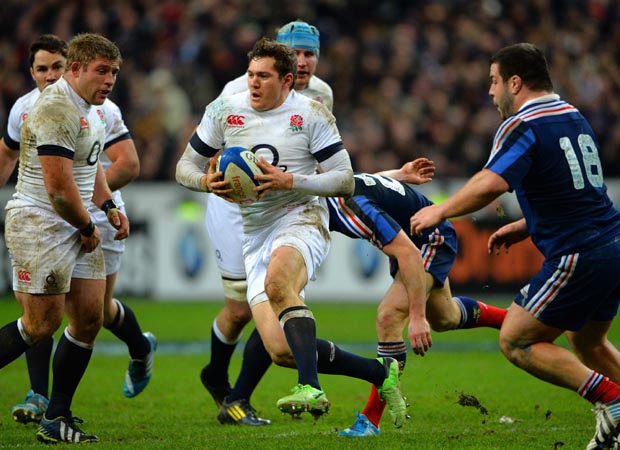

Having a coach who knows his own mind on selection and is loyal to his players – as Lancaster prides himself on being – are important components in building a strong team culture, but there are important provisos.
First and foremost the coach needs to be proved right when it comes to controversial selection decisions, especially with a World Cup only 18 Test matches away. That was not the case in Paris, where, in the final quarter, Lancaster took off England’s four most influential players – Danny Care, Courtney Lawes, Dylan Hartley and Billy Vunipola – with none of them fading, England leading 21-16, and only Lawes troubled by a knock.
Second, Lancaster’s overriding aim must be to build a winning side, and that may mean by-passing some of his own selection protocols. England players want to be in a side which has the best chance of winning the 2015 World Cup, and neither they, nor the supporters, will be forgiving of a culture in which an overblown sense of loyalty by coaches to some players inhibits changes being made when they should be.
My view is that Lancaster, who, overall, has been sure-footed in selection until now, has started to make mistakes of the sort that could trip him up when it matters most. His unwillingness to make judicious changes on the wings against Italy last season, when he could have introduced Christian Wade and Jonny May, and his conservative backline bench choices against Scotland and France in this campaign, are their genesis.
In our Six Nations Round Table debate I advocated Lancaster blooding George Ford in Paris and starting him in Scotland. My rationale is that Farrell needs competition at fly-half, and England need cover in such a pivotal tactical position, with Ford offering both at a crucial juncture with just over a year and a half until the World Cup.
On top of that, Ford, who was voted the IRB’s Young Player of the Year in 2010, has shown in the Premiership with Bath this season that he brings a different set of skills to Farrell, notably as a natural playmaker with a sharp turn of pace who is happy to play on the gain-line.
Furthermore, if it was right for Lancaster to give Farrell his starting debut at the age of 20 in the Calcutta Cup two years ago there should have been no argument against including Ford against a Scotland side which went into the match 10th in the IRB world rankings and coming off a heavy defeat by Ireland.
Lancaster has taken a different view. Having brought Ford into the inner sanctum of the England squad as a travelling reserve in Paris it was not a quantum leap to assume that the 20-year-old’s time had come – only for the head coach to send him back to his club ahead of the Scotland game.
To those of us looking in from the outside it was a calculated risk to pick a bench against the French without a replacement fly-half, but the England head coach opted instead for Alex Goode as a utility back.
Lancaster also decided against giving a debut to Anthony Watson, favouring another England U20 World Championship winner, Jack Nowell, instead. Then, despite the Bath 19-year-old’s ability to cover wing and full-back from the bench, he felt Goode ticked all the boxes and went for Brad Barritt as a reserve centre.
Goode is a very adaptable footballer who has made an impressive three-year transition to full-back for Saracens after being a promising England U20 fly-half. However, he is no speedster, and expecting him to cover the back three as well as fly-half – which he has barely played at Premiership level – is pushing it.
Over-reliance on Goode underpins why Lancaster’s bench plan backfired when May came off with a broken nose after only eight minutes. The reorganisation, with Goode coming on for the Gloucester left wing, was found to be faulty when Yoann Huget skipped around the Sarries No.15 in the build-up to France’s second try.
Although England battled their way back into the match spearheaded by rousing displays from Lawes, Billy Vunipola and Care, the imbalance in the back three was a constant bonus for the French.
The home side wasted very few opportunities to attack England down the flanks, and they were richly rewarded – just as Wales were in last year’s Grand Slam spoiler – with all three French tries scored out wide. Afterwards, France coach Philippe Saint-Andre and his hooker, Benjamin Kayser, said that Gael Fickou’s late match-winning flourish was no accident.
Saint Andre said he knew from video analysis that England would be vulnerable in the final quarter of the match. “Because of all the effort they put into fighting back the English became less physical and aggressive as the match went on. So, we knew we would be able to find openings in the final 15 minutes.”
Kayser offered this insight: “We said never give up, and the mental side really does carry you to unbelievable places.”
Kayser’s comment serves as a salutary warning to clip-board coaches who set too much store by GPS trackers as a measure of when to take players off. Later, Lancaster refuted suggestions that GPS tracking had influenced his decisions.
As for the French, Yannick Nyanga’s impressive work-rate did not stop him making the charge that set the Fickou try in motion. In the process the Toulouse flanker emphasised that players are capable of scaling the heights when they are running on empty physically and mentally.
Imagine Sir Edmund Hillary and Tiger Tenzing setting off for the last leg of their ascent of Everest with GPS gizmos between their shoulder blades only to have some bloke in a track-suit shouting, “Ed, Tiger, you’re off”, just as they gather themselves for the final push. GPS tracking is yet another coaching aid which should be banned during matches.
Lancaster may baulk at criticism of his bench deployments but when you look back at the final quarter of a match that killed his side’s Grand Slam aspirations for another season, there is little question that they were a significant factor.
Lancaster’s choice of Lee Dickson, Barritt and Goode as his three backline replacements were always in danger of leaving England a hostage to fortune, mainly because none of them brought any pace.
Dickson is not as fast as Care or Ben Youngs – who has already covered for England on the wing – and, while Barritt and Goode have their virtues, sprinting speed is not one of them. In fact, add Billy Twelvetrees, Luther Burrell and Mike Brown to the mix and the head coach had one of the slowest England back lines in recent memory on the pitch, when what he needed were players fast enough to scramble to snuff out any French threat.
While Barritt is a safe option he is a luxury when there are three replacement backs because he only covers centre. By comparison, if Lancaster had put Ford on the bench, he would have had the option of not only covering No.10 but centre too, with Farrell moving to No.12 as he did when they played in tandem for the England U20s.
My bet is if Ford and Watson had been on the bench England would have been far better placed to remedy the holes in an England backline which, with Farrell shuffling about for the last 10 minutes after a cramp attack, Barritt at outside-centre and Burrell shunted out to the right wing, had totally lost its defensive shape.
It explains why, in the build-up to Fickou’s coup de grace, Barritt was a long way out of position and Burrell caught in no-man’s land as Dimitri Szarzewski stepped on the gas. With both players committing the cardinal sin of not tackling the French hooker as he passed, leaving him in support even after Fickou received the ball, Goode was left facing a two-on-one with winger Maxime Medard outside the centre.
Goode also forgot one of the golden rules of full-back defence in buying Fickou’s dummy rather than nailing him – and leaving it in the lap of the gods whether any attempted pass found Medard. That would also have given England’s chasers the opportunity to cut off an attempt to run round under the posts, leaving Maxime Machenaud with a difficult touchline conversion – and Chris Robshaw‘s outfit with the chance of a draw.
Lancaster defended his replacement strategy this week saying that it did not cost England the game, and added, “It’s not an exact science…if it was it would be easy”. He also slipped in a rebuff to his critics, saying, “hindsight is a wonderful thing”.
The last comment suggests Lancaster has yet to accept that hindsight will stalk him wherever he goes as England head coach, and that the trick to nullifying it is for ‘his way’ to be right so often in terms of selection and substitutions that being wise after the event is taken out of the equation.

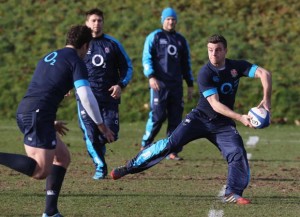
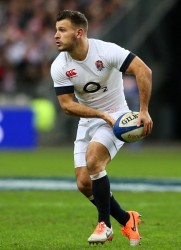





















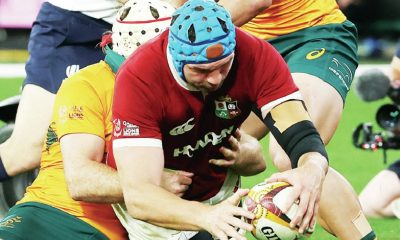

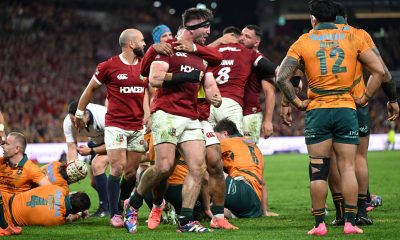

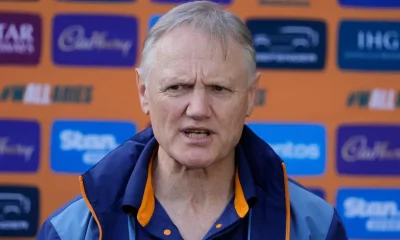

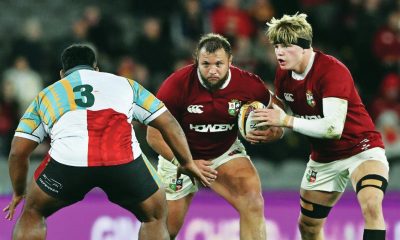



You must be logged in to post a comment Login